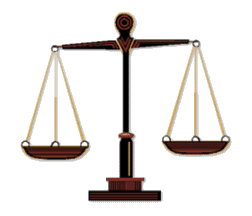Freedom of speech

Freedom of speech is the political right to communicate one's opinions and ideas using one's body and property to anyone who is willing to receive them. The term freedom of expression is sometimes used synonymously, but includes any act of seeking, receiving and imparting information or ideas, regardless of the medium used.
The right to freedom of expression is recognized as a human right under article 19 of the Universal Declaration of Human Rights and recognized in international human rights law in the International Covenant on Civil and Political Rights (ICCPR). Article 19 of the ICCPR states that "[e]veryone shall have the right to hold opinions without interference" and "everyone shall have the right to freedom of expression; this right shall include freedom to seek, receive and impart information and ideas of all kinds, regardless of frontiers, either orally, in writing or in print, in the form of art, or through any other media of his choice". Article 19 goes on to say that the exercise of these rights carries "special duties and responsibilities" and may "therefore be subject to certain restrictions" when necessary "[f]or respect of the rights or reputation of others" or "[f]or the protection of national security or of public order (order public), or of public health or morals".[1][2] [3]
Child pornography
The free speech implications of prohibiting child pornography have been examined by the U.S. Supreme Court in several cases. In New York v. Ferber, 458 U.S. 747 (1982), the Court ruled unanimously that the First Amendment right to free speech did not forbid states from banning the sale of material depicting children engaged in sexual activity. In Osborne v. Ohio, 495 U.S. 103 (1990), the three dissenting justices stated, "When speech is eloquent and the ideas expressed lofty, it is easy to find restrictions on them invalid. But were the First Amendment limited to such discourse, our freedom would be sterile indeed. Mr. Osborne's pictures may be distasteful, but the Constitution guarantees both his right to possess them privately and his right to avoid punishment under an overbroad law."
Other implications
The freedom of speech of persons in prison or on probation or supervised release is routinely restricted. For example, in Harper v. Wallingford, the 9th Circuit allowed a prison to prevent a prisoner from receiving mail from NAMBLA.[4] Justice Louis Brandeis' dissent in Whitney v. California, 274 U.S. 357 (1927), argues that allowing people to speak freely about the merits of legalizing currently prohibited behavior, even when the speech might encourage people to engage in that behavior, prevents the democratic process from being strangled.
References
- ↑ "Article 19", International Covenant on Civil and Political Rights, Office of the United Nations High Commissioner for Human Rights; adopted and opened for signature, ratification and accession by UN General Assembly resolution 2200A (XXI) of 16 December 1966, entry into force 23 March 1976, 23 March 1976. Retrieved on 13 March 2014.
- ↑ Ambika Kumar. "Using Courts to Enforce the Free Speech Provisions of the International Covenant on Civil and Political Rights", Summer 2006.
- ↑ Freedom of speech (Wikipedia)
- ↑ Harper v. Wallingford, 877 F. 2d 728 (9th Circuit 1989).